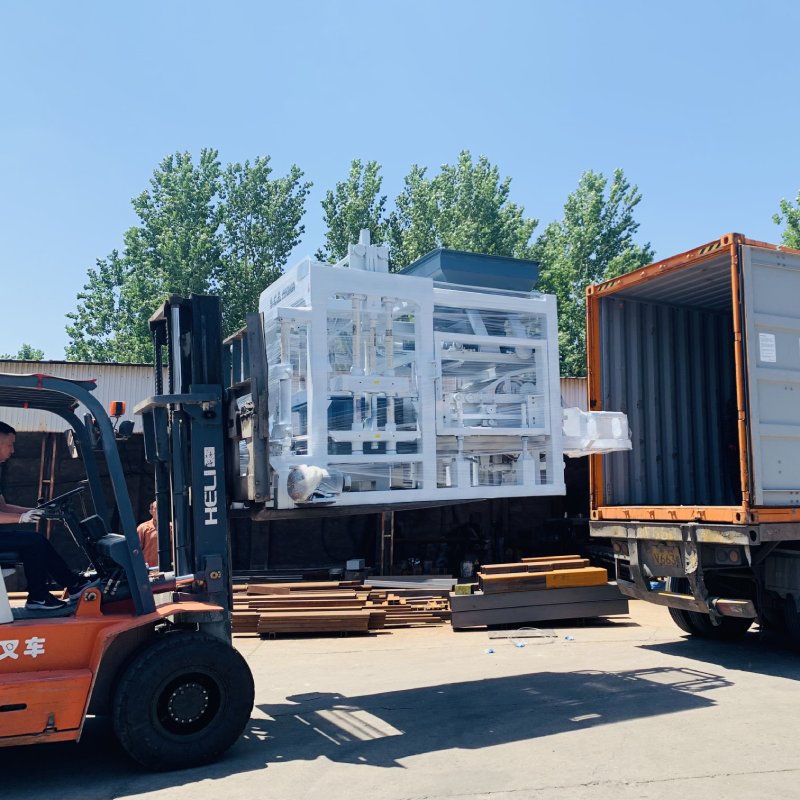
Image source Aiwei Block Machine
AI-Powered Automation in Brick Block Making Machinery
Introduction
In recent years, the construction industry has undergone a significant transformation with the advent of advanced technologies. One of the most notable advancements is the integration of artificial intelligence (AI) into various aspects of construction processes. Among these innovations, AI-powered automation in brick block making machinery has emerged as a game-changer. This article delves into the profound impact of AI on brick block manufacturing, highlighting its benefits, challenges, and the future trajectory of this transformative technology.
The Evolution of Brick Block Making Machinery
Brick and block manufacturing have long been labor-intensive processes, involving repetitive tasks that often lead to human error and inconsistencies. Traditional brick making has relied heavily on manual labor, limiting production capacity and efficiency. However, the integration of automation and AI technologies is reshaping this age-old industry.
Understanding AI-Powered Automation
AI-powered automation involves the application of artificial intelligence to control and optimize manufacturing processes. In brick block making machinery, AI enables machines to perform tasks that traditionally required human intervention. Through machine learning algorithms and data-driven insights, these machines can adapt, learn, and refine their operations over time.
Benefits of AI-Powered Automation in Brick Block Manufacturing
- Enhanced Efficiency and Speed: AI-powered machines work tirelessly around the clock, increasing production capacity and significantly reducing the time required for brick and block manufacturing.
- Consistency and Precision: AI eliminates human error and ensures that every brick or block produced adheres to precise dimensions and quality standards, resulting in consistent and high-quality outputs.
- Resource Optimization: AI-driven machines optimize the use of raw materials, reducing waste and contributing to sustainable manufacturing practices.
- Real-Time Monitoring and Maintenance: AI-enabled sensors continuously monitor machine performance, detecting potential issues before they lead to downtime. Predictive maintenance minimizes disruptions and maximizes operational efficiency.
- Customization and Design Flexibility: AI-powered machinery allows for customization in block design and patterns, offering architects and builders a wide array of creative possibilities.
Challenges and Considerations
While AI-powered automation offers numerous advantages, its integration into brick block manufacturing is not without challenges:
- Initial Investment: Implementing AI-driven machinery requires a significant upfront investment, including purchasing new equipment and providing training for staff.
- Workforce Adaptation: Automation may lead to concerns about job displacement, necessitating reskilling and workforce adaptation strategies.
- Data Privacy and Security: AI relies on data collection and analysis, raising concerns about data privacy and security in an industry that has traditionally been less digitized.
- Technical Expertise: Operating and maintaining AI-powered machinery demands specialized technical expertise, which may pose challenges for traditional brick manufacturers.
The Road Ahead
The future of brick block manufacturing lies in the seamless integration of AI and automation. As the technology evolves, we can expect to see:
- Further Optimization: AI algorithms will become more refined, enabling machinery to continuously learn and optimize production processes for higher efficiency and quality.
- Human-Machine Collaboration: The role of human workers will shift towards overseeing and collaborating with AI-driven machines, creating a harmonious coexistence.
- Digital Twin Technology: AI-driven machines will be paired with their digital counterparts, allowing real-time simulation and testing of manufacturing processes before physical production.
- Sustainability Enhancements: AI will play a pivotal role in developing eco-friendly brick and block production methods, optimizing resource usage and waste reduction.
Conclusion
The integration of AI-powered automation into brick block making machinery marks a transformative phase in the construction industry. As AI continues to evolve, its benefits, ranging from enhanced efficiency to sustainability improvements, will reshape how bricks and blocks are manufactured. The challenges, including initial investment and workforce adaptation, must be met with strategic planning and an emphasis on human-machine collaboration. The road ahead holds immense potential for creating a more efficient, sustainable, and innovative construction landscape, driven by the power of AI automation.
